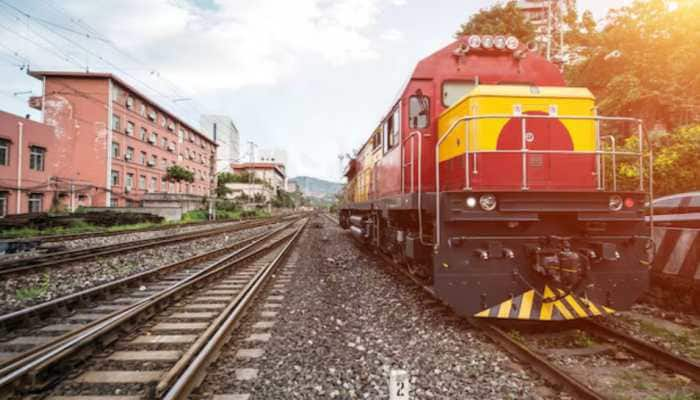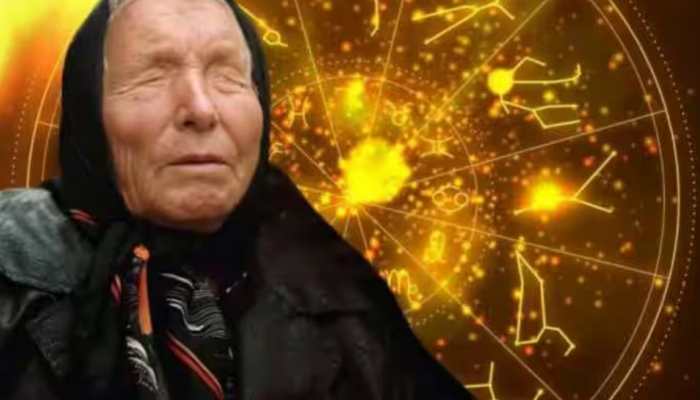PM Modi Urges Scientists To Develop Earthquake Warning Systems At IMD’s 150th Anniversary Celebration
Referring to past tragedies, the prime minister recalled the devastating Gujarat cyclone in 1998 and the 1999 Odisha super cyclone, which claimed thousands of lives. “But loss of life is minimal now because of better forecasts,” he said.
Trending Photos
) Image: PTI
Image: PTI Prime Minister Narendra Modi on Tuesday called for the development of advanced earthquake warning systems, emphasizing the critical role of meteorology in disaster management. Speaking at the 150th anniversary celebrations of the India Meteorological Department (IMD), Modi praised the institution as a cornerstone of India’s scientific achievements and its contributions to disaster resilience.
"Advanced weather forecasting has significantly reduced casualties and minimized economic losses caused by cyclones," Modi noted, reflecting on India’s improved disaster management capabilities. He highlighted how accurate forecasts have strengthened investor confidence and built economic resilience in vulnerable regions.
Referring to past tragedies, the prime minister recalled the devastating Gujarat cyclone in 1998 and the 1999 Odisha super cyclone, which claimed thousands of lives. “But loss of life is minimal now because of better forecasts,” he said.
During the event, Modi launched 'Mission Mausam,' an ambitious initiative to develop cutting-edge weather surveillance technologies. The program aims to implement high-resolution atmospheric observation systems, next-generation radars, satellites, and high-performance computing systems to make India "weather-ready and climate-smart."
“We have launched 'Mission Mausam' to make India weather ready and climate smart,” he said, underscoring the need for advancements in meteorology to meet future challenges.
Modi also unveiled the IMD Vision-2047 document, which outlines strategies for building weather resilience and adapting to climate change. To commemorate IMD’s 150-year legacy, he released a special postage stamp and a coin.
The event was graced by several dignitaries, including World Meteorological Organisation Secretary General Celeste Saulo, Earth Sciences Minister Jitendra Singh, IMD Director General Mrutyunjay Mohapatra, and Earth Sciences Secretary M Ravichandran.
Modi highlighted the international impact of India’s meteorological advancements, noting that the Flash Flood Guidance system now provides critical data to neighboring countries like Nepal, Bhutan, Bangladesh, and Sri Lanka.
“India’s disaster management capabilities have significantly improved due to advancements in meteorological technology. This is beneficial not only for us but also for the global community,” he remarked.
Looking ahead, Modi emphasized the need for future-oriented solutions. “There is a need to develop warning systems for earthquakes, and scientists and researchers should work in this direction,” he urged.
The prime minister delved into India’s rich heritage of weather expertise, citing ancient texts such as the Vedas, Samhitas, Surya Siddhanta, and Tamil Nadu's Sangam literature. He also referenced folk literature like Ghagh Bhaddari and works such as Krishi Parashar and Bruhat Samhita, which studied cloud formations and planetary positions.
Quoting from "Pre-Modern Kutchi Navigation Techniques and Voyages," Modi lauded Gujarat's centuries-old maritime knowledge, emphasizing the importance of traditional wisdom in modern meteorology.
As IMD continues to refine its forecasting capabilities, Modi stressed their increasing significance across industries, agriculture, and daily life. Referring to his visit to Sonamarg in Jammu and Kashmir on Monday, he noted how IMD's precise forecast helped plan the inauguration of a 6.5 km tunnel on a clear-weather day.
"Better forecasts mean better outcomes, not just for our country but for the world," Modi concluded.
Stay informed on all the latest news, real-time breaking news updates, and follow all the important headlines in india news and world News on Zee News.
Live Tv







)
)
)
)
)
)
)
)
)
)
